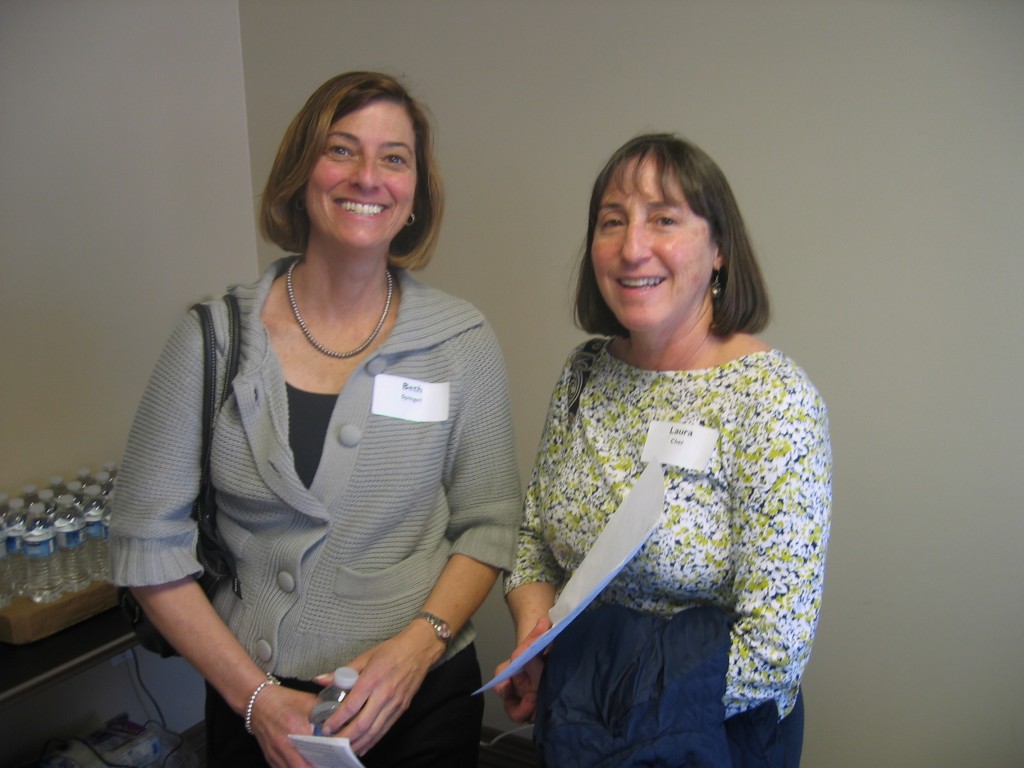By Collin Lessing, JVA Consulting
“Join us. It’s time to change the world again.”
That’s what the Power Point slide projecting against a wall read at the Boomers Leading Change in Health (BLCiH) offices, and it’s that sentiment that filled the room with potential volunteers at BLCiH’s first orientation session.
Last week, BLCiH announced the orientation and training sessions for this initiative to harness the experience and energy of adults age 50+ in meaningful action to improve the health of the community. I had the opportunity to attend one of the orientation sessions, and I was inspired by the turnout of people interested in volunteering.
As more and more interested boomers poured in, filling every available seat in the room, one person joked, “It looks like we may have a sit-in,” referring back to one of the grassroots activism strategies used by boomers the first time they changed the world.
Here’s a little background on the BLCiH project:
In 2006, Rose Community Foundation was selected by The Atlantic Philanthropies as one of 30 U.S. community foundations to join a national effort to understand the potential for future civic engagement of adults in their 50s and older.
Rose Community Foundation launched Boomers Leading Change, an initiative to find out how 55- to 64-year-olds in metro Denver were thinking about their future, and to mobilize them towards civic engagement.
The Foundation contracted with JVA Consulting to first conduct a community assessment and then to facilitate a process for work groups to create specific projects that addressed a community need. This process engaged a broad range of the community, including representatives from business, higher education, government, foundations and boomers themselves—eventually leading to the idea of mobilizing boomers to help members of the Denver community obtain access to health care.
“The key is that this should be meaningful work to the volunteer and to the people the program serves,” managing director Barbara Raynor explained to the attendees.
To ensure that the work is meaningful, volunteers can choose from three volunteering paths and will go through a screening process that will match them with a community partner. All volunteers will then be given training so that they can be effective in their roles as well as valuable assets to the community partners and the people served by BLCiH. Throughout the process, JVA will lead an evaluation that will give a close look at the volunteers’ experience.
“Health and health care seem to pervade every corner of our society,“ said Barbara. “If you’re dealing with a health crisis, it can be really confusing—even on your best day. To have a volunteer to help you get through it can be very meaningful to the person being helped and to the volunteer.”
If you are a boomer, or know a boomer who would like to become involved with BLCiH, please visit the orientation schedule here. All sessions are free and open to the public.







We at AgeNation.com are very interested in what you are doing – I have signed up for updates. We started our website at the beginning of this year with a very similar, but more general mission – to help boomers, elders and younger generations to live more consciously and age wisely. We are very interested in local initiatives, especially where there may be lessons and inspiration that can be shared with other localities. I shall watch with interest and if there is anything we can do to help, please let us know. In the meantime check us out – it is early days yet but all feedback is welcome!
Jasper Blake
Social Media Manager
AgeNation
jasper@agenation.com